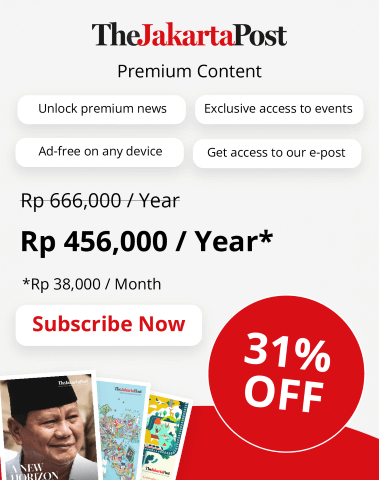News
The Paperization of Packaging: Sustainability Goes Beyond Trend
Sudibyo Wiraji (The Jakarta Post) July 22, 2024 Aerial photo of RAPP's paper factory in Pangkalan Kerinci District, Pelalawan Regency, Riau. (Bisnis.com).
Aerial photo of RAPP's paper factory in Pangkalan Kerinci District, Pelalawan Regency, Riau. (Bisnis.com).
From paper straws to shopping bags, the pursuit of sustainability has seemingly brought a gradual change to the way we shop.
The paperization, or rather the fiberization, of packaging is becoming increasingly visible. Single-use plastic bags are no longer provided in major retail stores across the archipelago, ostensibly to chip away at the 3.2 million tonnes of unmanaged plastic waste annually, per United Nations estimates.
Beyond Indonesia, the switch is international in scale. German discount supermarket chain Aldi is trialing the use of paper bands for its bananas in European markets, which if successful would cut down an estimated 234 tonnes of plastic packaging annually.
Meanwhile, e-commerce giant Amazon has moved to replace 95 percent of plastic air pillows in its delivery packaging in North America with recycled paper filler, eliminating the use of nearly 15 billion air pillows annually.
A Rakuten Insight survey found that 68 percent of Indonesian consumers are mindful of sustainability practices when making a purchase, which mainly derives from the effects of climate change in the country.
Globally, a 2023 survey by Two Sides found that 53 percent of the respondents were actively taking steps to increase their use of paper packaging, with 41 percent avoiding retailers that were not actively trying to reduce their use of non-recyclable packaging.
The same study also found that paper packaging was preferable for environmental and practical reasons, with 76 percent favoring its home-compostable nature, 55 percent noting that it was better for the environment and 49 percent finding paper easier to recycle.
Though paper products may not be as durable as plastic, paper can decompose between two to six weeks in comparison to the dozens or even hundreds of years needed for plastic.
At the same time, the fibers in paper allow them to be recycled an estimated four to seven times, though a 2021 study by Pro Carton found that paper fiber can be recycled up to 25 cycles. This in turn supports the shift to a more circular economy, extending the life cycle of existing products for as long as possible.
As sustainability moves from trend to way of life, leading producer of pulp and paper APRIL Group has expanded its line of business to introduce sustainable paper packaging products through its new business unit Riau Andalan Paperboard International (RAPI).
Based in Pangkalan Kerinci, Riau, APRIL Group is known for its flagship PaperOne brand of paper products, which has been exported to 110 countries. The company commenced production of paperboard under BoardOne and Silverpak brands earlier this year, with an annual production capacity of 1.2 million tons.
The construction of the Rp 33.4 trillion paperboard factory, along with its supporting infrastructure, marks a significant step in APRIL Group's APRIL2030 sustainability commitment, which emphasizes a holistic approach to diversification, circularity and responsible production. APRIL's commitment to environmental stewardship shines through in its product range. From folding boxboards to cup stock and art board (C2S), these offerings cater to diverse packaging needs while adhering to stringent sustainability standards.
These products are manufactured using high-quality fiber sourced from APRIL’s sustainably managed plantations, which are certified under the Programme for the Endorsement of Forest Certification (PEFC) Sustainable Forest Management standards. The facility’s fiber supply will largely come from productivity increases from existing plantations and will comply with APRIL’s sustainability policy.
"This product diversification strengthens our commitment to develop our business sustainably," Sihol Aritonang, president director of APRIL operating arm Riau Andalan Pulp and Paper, said.

